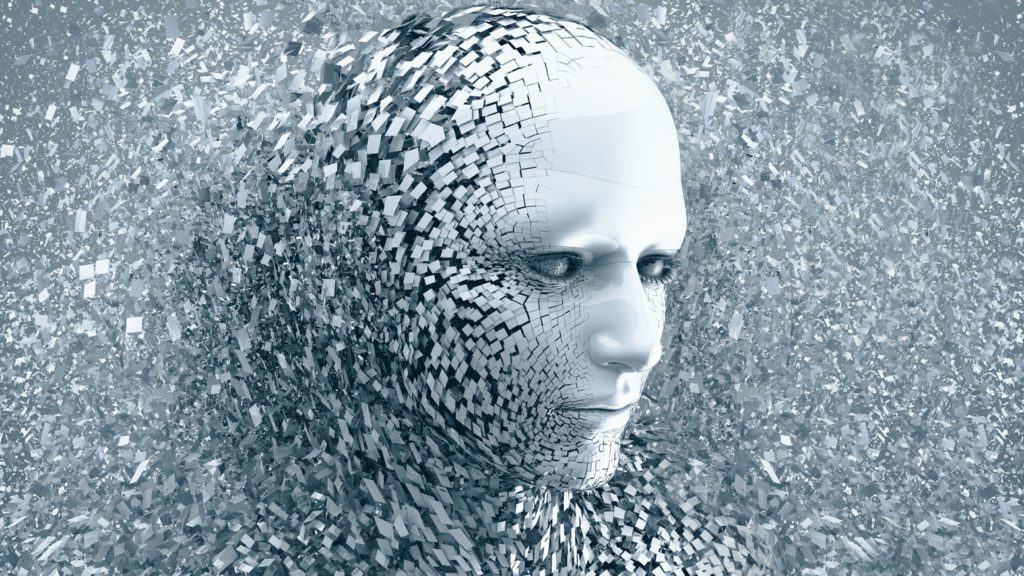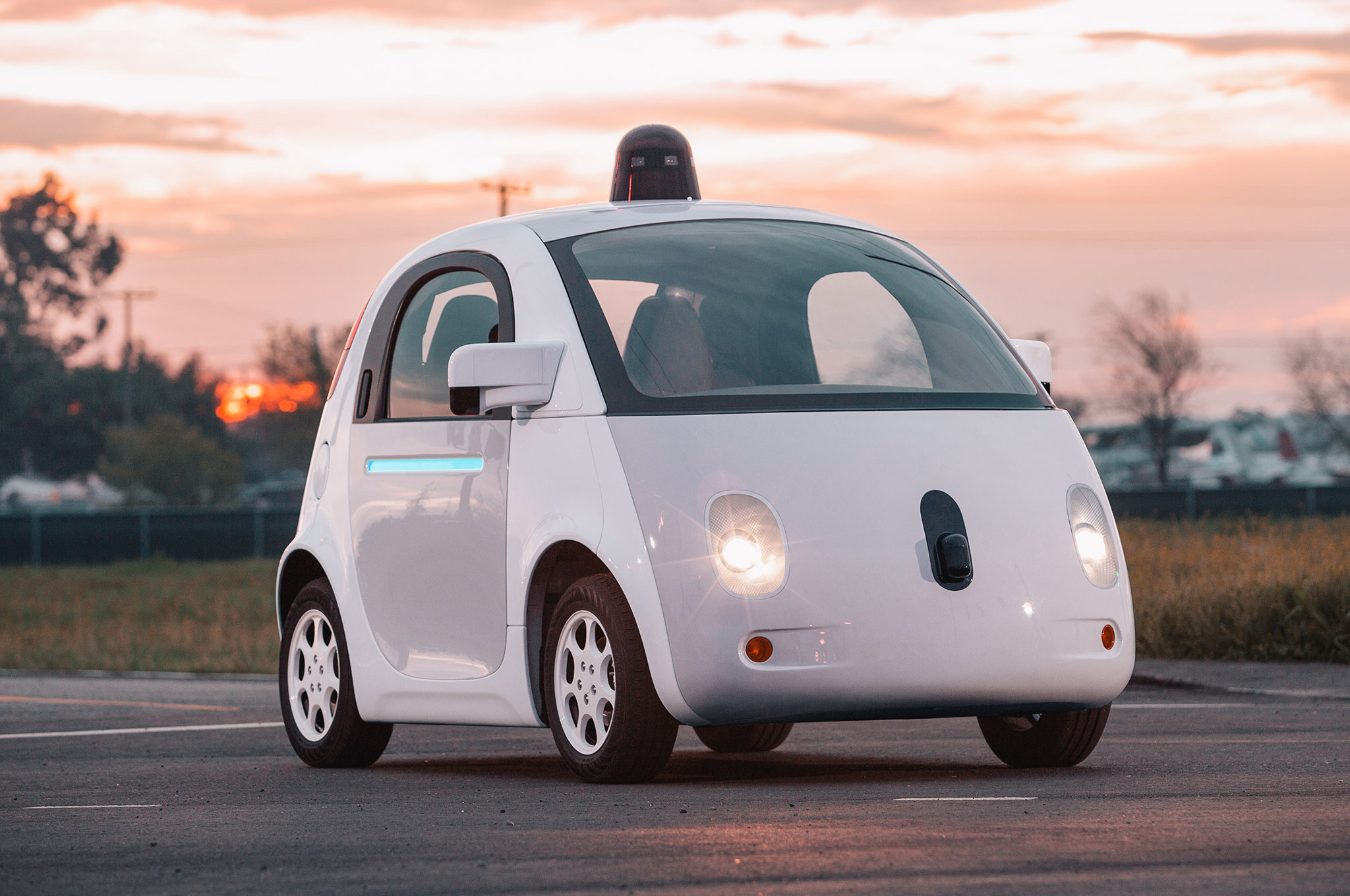
Artificial Intelligence: How far can it go?
After Fridays class and after the recent news of two AI chat bots creating their own language, I wondered to what extent can AI be pushed? Will it be useful after a certain level and When does it all go overboard? But before answering these questions, it is important to know the basics of AI.
Artificial Intelligence (AI) is the theory and development of computer systems able to perform tasks that normally require human intelligence, such as visual perception, speech recognition, decision-making, and translation between languages. [Wikipedia] This technology is already being widely used for many different applications:
Virtual Assistants

Siri, Google Now, Alexa and Bixby are all virtual assistants on different platforms using one common thing: the power of AI. AI is important in these apps, as they collect information on your requests and use that information to better recognize your speech and serve you results that are tailored to your preferences. The personal virtual assistants also constantly learn your voice, your speech and information over time to provide an even more smarter and personal solution.
Video Games
AI in video games has existed since quite a lot of time. I remember playing Counter Strike back in the day against bots which in some essence were AI. Now, video games like Call of Duty and Far Cry use AI at its core of the games to provide an interactive gaming experience to users in story modes and online multiplayer game modes. This is truly a good example to see the evolution of AI.
Smart Cars

By smart cars, I dont mean the little smart car we sometimes spot around town but rather the self driving/smart cars such as Tesla. These cars rely heavily on AI to compute and map the many sensors that run the entire system. The idea is that, eventually, the car will be able to “look” at the road ahead of it and make decisions based on what it sees, helping it learn in the process.
Future Picture
Now these are just some of the basic examples to give you an idea of how this technology is shaping currently and what we might see in the future. Speaking of the future, AI can be used for multiple solutions such as fraud detection, banking, chat bots, security and so on. Some researchers also believe that AI will be so smart that they may become digital superhuman. Thomas Dietterich, a professor of computer science at Oregon State University says “Future systems may work via augmented reality or by giving us sensory abilities far beyond existing vision, hearing, and manipulation. For example, I hope that exoskeletons will allow me to walk when I am old and feeble. I hope that I can retain my sense of hearing and sight even as my eyes and ears fail.”
Now the questions remain; to what extent can AI be pushed? Will it be useful after a certain level and When does it all go overboard? My personal opinion is that as far as we don’t go deep into creating substitute of humans or the human brain, AI will be safe. But the recent news of two facebook AI bots creating their own language and causing the company to shut them down has arose doubts in my mind once again. The story came after repeated warnings from many of the most respected minds in the world: people including Stephen Hawking have suggested that artificial intelligence could potentially bring about the end of humanity. Until this technology is fully developed, experiences will also make us learn on how to limit them and not go overboard. So in the end it is just all about the waiting game.
References:
- https://beebom.com/examples-of-artificial-intelligence/
- http://www-formal.stanford.edu/jmc/whatisai/node3.html
- http://www.independent.co.uk/life-style/gadgets-and-tech/news/facebook-artificial-intelligence-ai-own-language-what-does-it-mean-fair-robots-chatbots-a7874576.html
- http://www.businessinsider.com/researchers-predictions-future-artificial-intelligence-2015-10/#stuart-russell-says-very-smart-computers-could-solve-all-our-problems-including-climate-change-5
- https://en.wikipedia.org/wiki/Artificial_intelligence
- http://web.engr.oregonstate.edu/~tgd/
Users who have LIKED this post:
5 comments on “Artificial Intelligence: How far can it go?”
Comments are closed.


Hi Saran, Thank you for your great summary. One of the biggest advantages of AI is that is doesn’t have emotion: no emotion => rational facts use => less productivity loss. Couple that with a 0 need for down time and the productivity of the machine skyrockets in comparison to humans. But exactly the same can be a downside too. The lack of emotion, empathy, and compassion also hinder AI from forming a real bond with humans. If the AI is deployed in medicine (like the Lark example) where the human interaction is a major factor, the lack of emotion can become a significant product limitation.
Users who have LIKED this comment:
Thank you for your post Saran. I think we have yet to see everything that AI has to offer. I think they will eventually replace some jobs we have today but with that new jobs will be created. I believe they call it the fourth industrial revolution so we have to be prepared for the changes that it will offer but I think they will benefit humans instead of taking over as they do in movies.
Users who have LIKED this comment:
Great post Saran.
I agree with you that the path A.I can take in a near future and the recent news make me feel apprehensive about how good would be to have this technology in our lives.
Undoubtedly, AI can help us in many ways, from security in traffic by using self-driven cars, to health prevention by using AI to diagnose and take track of the patient and much more.
On the other hand, the fact that AI could develop itself to become a substitute of the human brain, as you mentioned, would be terrifying in my opinion.
Now we should wait and see the path AI will take. Hopefully, it will develop with security and it wont be a treat to us.
Users who have LIKED this comment:
Hi Saran!
So interesting! You posy got me thinking a lot.
First, I think it is important to keep in mind that the limitations of the human brain will always reflect on the products and solutions. This is why, in my opinion, the key is to make humans smarter, so that the solutions and creations can also be that way. Of course another issue arises, how is the best way to make the human brain smarter? There are some solutions from NLP (neuro linguistic programming), hypnosis, positive psychology and EEG Neurofeedback.
Second, as you express, humans will continue to be key in making other humans smarter. For instance, Neuroscience says that the positive impact that a human teacher has in a student is not even close to the impact a machine has in a student.
Humans have to continue to be the center and we need to focus on getting smarter every day, and coming up with new ways of getting smarter.
Warmly,
Meli
Users who have LIKED this comment:
Great post-Saran,
Thanks for the overview on where we are in machine learning. My personal feeling is we are still at the beginning stages of AI. To add to this, I have mentioned this in my earlier blog too – Kevin Kelly a digital visionary on TED says “So we have many ongoing tendencies right now, and I think one of the chiefs among them is this tendency to make things smarter and smarter. I call it cognifying — cognification — also known as artificial intelligence, or AI. And I think that’s going to be one of the most influential developments and trends and directions and drives in our society in the next 20 years” He concludes saying “The most popular AI product in 20 years from now, that everybody uses, has not been invented yet. That means that you’re not late” he also adds AI is already here often it works in the background, in the back offices of hospitals, where it’s used to diagnose X-rays better than a human doctor. It’s in legal offices, where it’s used to go through legal evidence better than a human paralawyer. It’s used to fly the plane that you came here with. Human pilots only flew it seven to eight minutes, the rest of the time the AI was driving. And of course, in Netflix and Amazon, it’s in the background, making those recommendations. That’s what we have today and we can expect a lot in future. But i personally feel machines will never overcome humans and AI makes machines and human to work together in more smarter way
Users who have LIKED this comment: